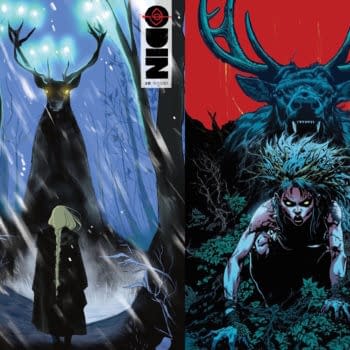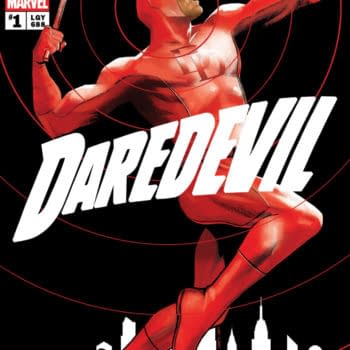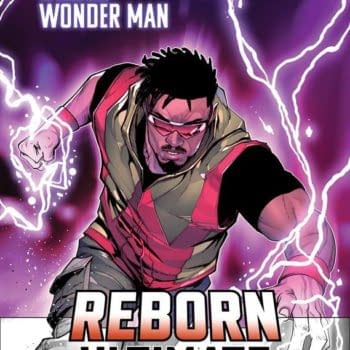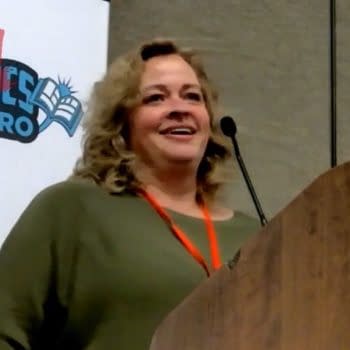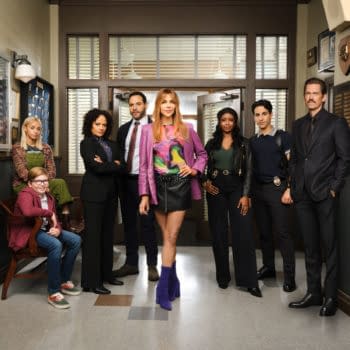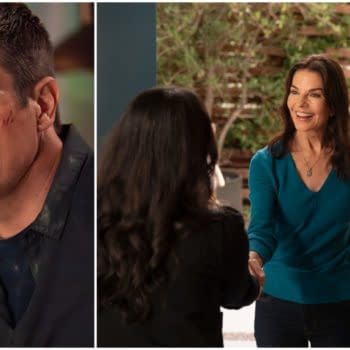Posted in: Current News, TV | Tagged: Big Mood, Camila WHitehall, channel 4, Lydia West, Nicola Coughlan
Big Mood: Q&A With Nicola Coughlan & Camilla Whitehill For Channel 4
Big Mood is a six-part comedy series for Channel 4 created by Camilla Whitehill, starring Nicola Coughlan as Maggie and Lydia West as Eddie.
Article Summary
- "Big Mood" is a six-part comedy series on Channel 4, exploring bipolarity and friendships.
- Nicola Coughlan shines as Maggie, dealing with life's complexities in realistic London.
- The series deepens existing friendships, with intimate, funny, and heartfelt moments.
- Produced by Dancing Ledge Productions, premiering March 28 at 10 pm with a double bill.
Here's a Q&A from the Big Mood event with Channel 4 last week with Camilla Whitehill and Nicola Coughlan. Big Mood is an upcoming six-part comedy series for Channel 4 written and created by Camilla Whitehill, directed by Rebecca Asher, and starring Nicola Coughlan as Maggie and Lydia West as Eddie. It launches next week and I got to see the first three episodes blind last week on a Tuesday morning in Soho, and I was blown away. It fits the mould of many a modern Britcom, a smattering of young folk who find themselves shoved together, getting up to various scrapes, filled with foul language, cringing experiences, and something truly heartfelt in there. Oh, and someone from Derry Girls. You know, like Big Boys, or Extraordinary, or Screw, or Outlaws or Upgraded. And that's what I thought I was getting with the first episode.
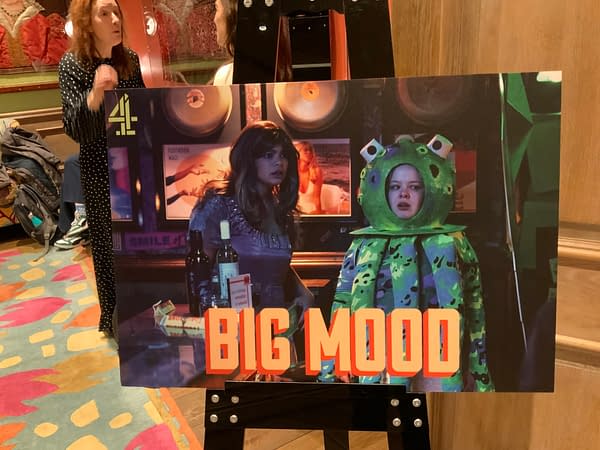
Then the second episode takes one seeming throwaway line in the first from Eddie about whether Maggie is manic right now as they embark on a mission for Eddie to shag her old school teacher. And that is actually where this show is heading, a journey into the effects of Maggie's bipolarity on her life, those of her friends, and her family. And suddenly, this is a whole new world. It's not just the complex life we are all living, but one with so many other added complexities thrown into it.
Because it is not as if Eddie doesn't have her own problems, inheriting a once fashionable pub in a once fashionable area of London from her dead Dad, shared with a brother who is inclined to sell the place, and a posh-but-useless barman called Krent, a truly relatable lovelorn limpet in Kaz, and a basement hotel for rats, providing a backdrop for much of the show. And so they are a support network for each other, even if it can be a bit lopsided.
We also get a very recognisably London version of London, rather than one with all the landmarks, and shares further DNA with the likes of Slow Horses and Extraordinary in that way. This is a London that people live and work in, rather than fits on a postcard or an Insta. It's a London I love and one that makes more sense than, say, the London from Hobbs & Shaw, which was Glasgow with Union Jacks. Hey, look, I care, it works for me, but it also grounds Big Mood into a more visceral reality. The characters of Big Mood may love the work of Richard Curtis, but this is a London that is actually believable and delivers something more gutsy.
There is one particular scene where, in the midst of a full-blown Love Actually-themed birthday party, the details of which are ridiculously beautiful, where it is too much for Maggie, and she is on the floor. Only for Eddie to join her there, upside down, face to face, and just talk her round. Despite being so public, it is intimate, loving and shows such a long, long friendship.
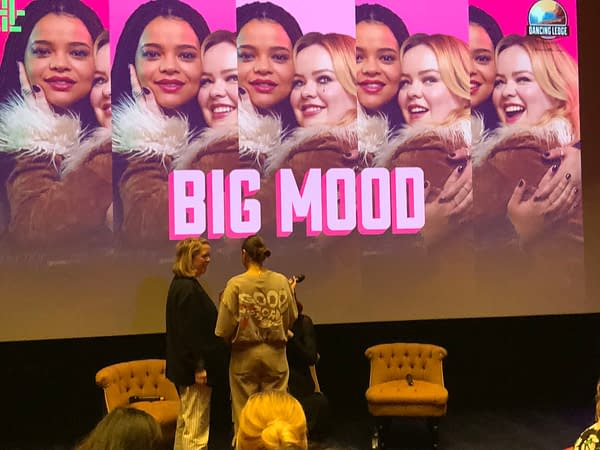
Many shows are set amongst people who have just met, and we follow them getting to know each other. Big Mood joins that story ten years in, when friendships, in-jokes, and nostalgic events have all set in, leaving us to play catch up and wonder what happened on that Hen Night in 2018 that means Maggie seems destined to still wear the T-shirt when in her slob out mode.
And there are the other friends they have picked up along that way, theatrical folk, fans, hangers-on, and those who are settling down but not accepting what they have. As they say, "Some women spent their 20s raising a family, some on ketamine; both are valid choices". But whatever lessons they have learned along the way, they are willing to throw them out in a second for momentary benefit. Such as telling a mentorship subject that getting paid for being creative before they are twenty-five is not a thing; it's made up. I mean, where's the lie?
Throw in comedy legend Sally Phillips as Maggie's psychiatrist, who is freaking out after one patient just committed suicide on her and is obsessed with promoting her triangle-shaped methods of self-care, "any other shapes?" "Not peer-reviewed", and this is so full of everything, everywhere and everyone, that you find yourself catching your breath, only to expel it in laughter.
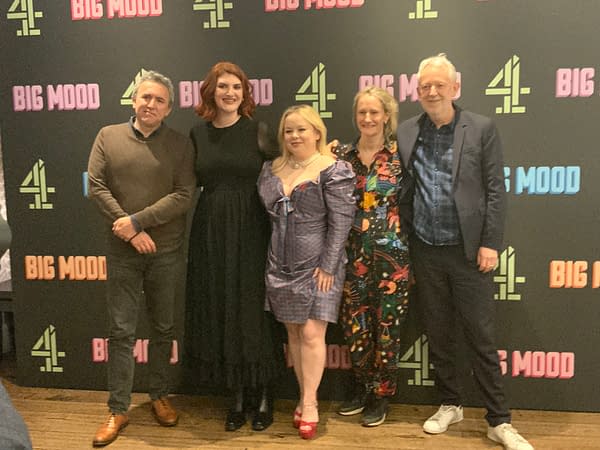
Then there is Maggie's Mum. A character I may have found ridiculous in my twenties, but now in my fifties, find heartbreaking. Trying to do the best for her daughter, knowing she has made mistakes in the past, trying not to make them now, but not knowing what she can possibly do.
And in doing so, Big Mood lifts the lid on Maggie, letting us look in on a woman who is amazing but her own worst enemy and how she contains both the seeds of her salvation and her own undoing. Then again, don't we all? Can we laugh at ourselves as readily? I hope so; Big Mood is challenging, riotous, but more than anything, drop dead funny.
Big Mood is produced by Georgie Fallon for Dancing Ledge Productions. Lotte Beasley Mestriner, Laurence Bowen, and Chris Carey are its executive producers. Big Mood episode 1 airs on Channel 4 on Thursday, the 28th of March, at 10 pm, with the second episode following straight afterward at 10.35 pm. All six episodes will then be available on the Channel 4 App.







